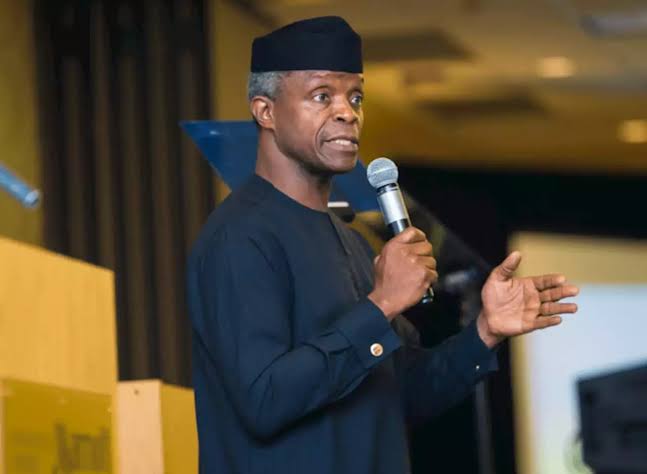Vice President Yemi Osinbajo has disclosed that the country’s population will be hitting 543 million by 2050.
Osinbajo said the increase in Nigeria’s population would be more of a burden than an asset for the nation without a commensurable economic growth.
Speaking at the inauguration of the Senior Executive Course (SEC) 42 of the National Institute of Policy and Strategic Studies (NIPSS) Kuru near Jos Plateau state.
The vice president who was represented by the acting head of service, Yomi Esan, said Nigeria needs to embark on human capital development to create the necessary environment for skill and knowledge acquisition.
Osinbajo said: “The Federal Government has high expectations of the nominees of Senior Executive Course 42, given the critical role of human capital development as a response mechanism to rapid population growth in our national economy.
“You should research carefully into this theme in order to proffer policy options that will enable Government fashion out appropriate responses to the challenge of rapid population growth and slow pace of human capital development.”
Earlier, The Herald reported that the National Population Commission (NPC) revealed that the population of Nigeria is now 190 million.
Ghaji Ismail, NBC Director-General, said this while addressing a press conference tagged ‘25 Years of ICPD: Accelerating the Promise,’ on Tuesday.
Ismail said: “Based on data available to us, the present population is about 190 million. About three months ago, UNFPA brought out a figure of 201 million. The UN figure is a function of the assumptions they have made.
“You have to use models to arrive at the figures you are projecting. The margin of error is very small. It is more imperative that the government should undertake another census.
“It strengthens our case that we should have undertaken another census; the last one was in 2006 and we should have had another in 2016 in line with the 10-year global requirement.”
According to Ismail, the urgency of a national census had positive implications for national security.
He added: “For the last three to four years, we have been preparing and there is a process which gives us a lot of hope that this will soon be addressed.”

